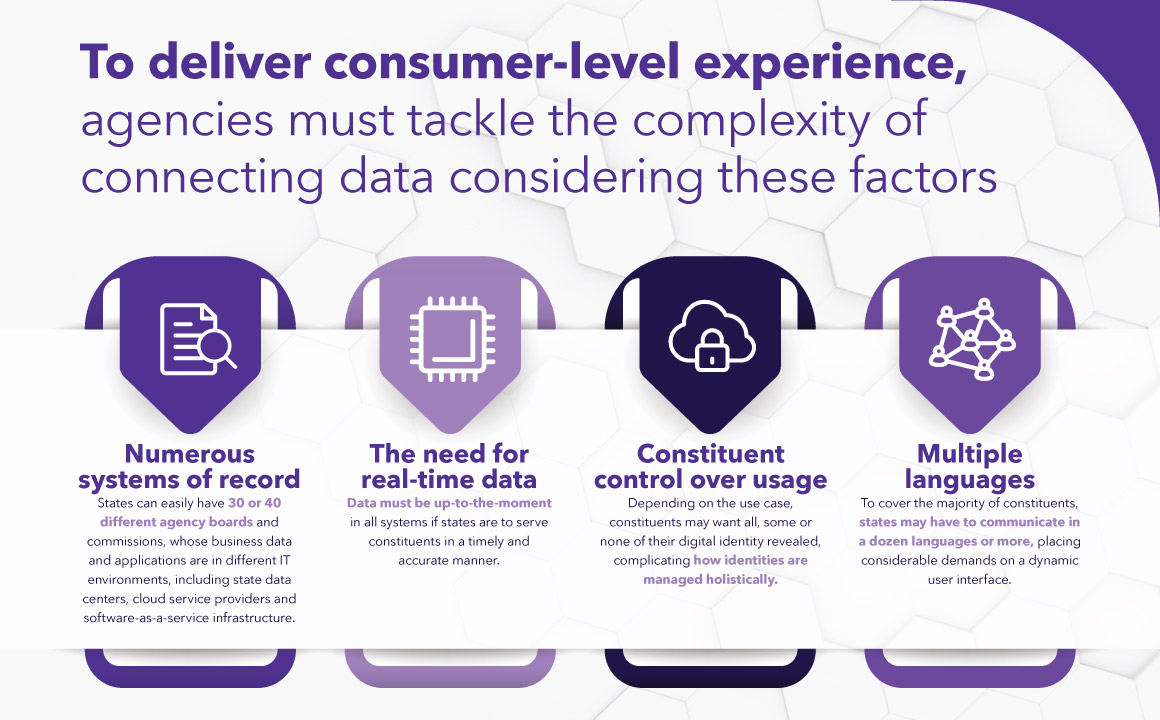We live in the early days of what’s been called the experience age.
Five of the six most valuable companies in the world—and many of the most admired—are “experience companies.” What sets businesses like Apple, Amazon, and Microsoft apart is their ability to use data to anticipate what their customers want, and then deliver services in smarter, simpler ways.
As a result, people now expect this same kind of top-grade consumer experience from governments. And they’re trying hard to deliver it.
Every state is on a digital transformation journey to make transactions and interactions easier—to create an experience where residents can log in once and access agencies’ data, programs, and business services.
But governments still face several obstacles to realizing that experience.
For starters, governments, like today’s leading companies, are swimming in data, but much of it is lying dormant. Actionable information is dispersed across state agencies, where assorted types of data are managed in separate databases that are built and structured differently. Because each holds its own unique sliver about a person, there is frequently no single view of the constituent across business services.
Agency leaders looking to solve this problem face a web of privacy rules, conflicting statutes, and interagency data-sharing barriers. Even if they’re able to overcome those challenges, agencies still need to bring their disparate data together in a common structure with proper security and privacy protections.
The data access challenge — and opportunity
With so many obstacles to navigate, managing secure access across state systems can be a huge challenge with big implications. If agencies can’t recognize constituents in different places—and access all their interactions, transactions, and information—then they’re not personalizing the experience in the way that today’s digitally savvy public expects.


